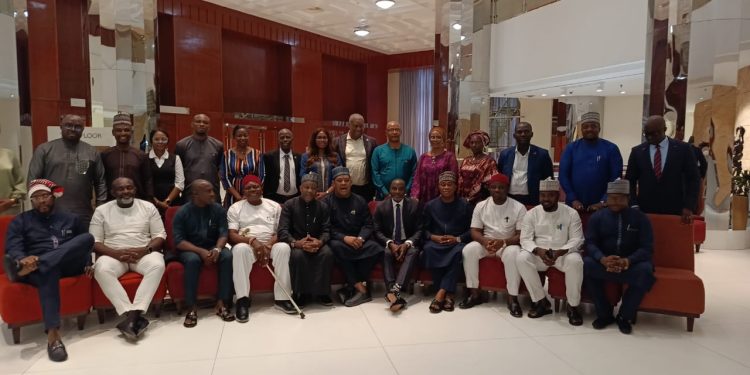Hon. Amobi Godwin Ogah, Member, House of Representative representing Isuikwato/ Umuneochi Federal Constituency, has said the Nigerian government is working tirelessly to end the menace of tuberculosis, leprosy and buruli ulcer in the country by 2030.
Hon Ogah who is the Chair, House Committee on AIDS, TB and Malaria (ATM) made this known during the Parliamentary Stakeholders Consultative Meeting on Tuberculosis, organized by the National Tuberculosis and Leprosy Control Programme (NTBLCP) of the Federal Ministry of Health.
Hon Ogah explained that the current statistics on TB/leprosy in Nigeria is worrisome, but efforts have been put in place to address the existing gaps and ensure the necessary changes are achieved.
He said “the major challenge the health sector is facing is because the relationship between the health sector and parliamentarians is not robust. There is no way we will appropriate money if we don’t know the issues.”
He also noted that it is important for organizations working on health to form a collaboration and partnership with the parliament, adding that “it is imperative that parliamentarians are carried along in the program formulation and conceptualization, to deliver this program to the people at the grassroots. Let us collaborate more for the betterment of Nigerians.”
Speaking about the challenges encountered by the TB Programme in Nigeria, Dr. Amos Omoniyi, National Professional Officer for TB at the World Health Organization (WHO), explained that there is limited resources to tackle TB cases as expected.
Dr. Omoniyi said, “we have seen the trend and progress made in TB control program in Nigeria and we acknowledge various support from government at all levels, but there are still lots of gaps for the country to reduce the number of TB deaths by 90% by 20230.”
Omoniyi noted that TB is a disease that is very old but still ravaging, as the cause was first discovered in 1882, but it is worrying that the whole world is still battling with the scourge of TB.
While explaining that Nigeria has been dependent on donor funding to tackle TB, Dr Omoniyi appealed to the lawmakers to allocate more domestic resources to end TB by 2030 and to meet the 95% reduction in TB-related deaths by 2035.
He added that “as we appropriate, allocate, ensure accountability and raise awareness, collectively we can end TB, leprosy, Buruli ulcer in Nigeria.”
On his part, Dr Bertrand Odume, the first Vice Chair of the Stop TB Partnership Nigeria, explained that the funding gap for TB response in Nigeria is still a staggering one, noting that the biggest funding source is international donors.
“We cant do much without the resources, the little resources we have are maximized. There is an enormous gap, with the support of the parliamentarians, we can bridge the gap,” Dr Odunme added.
Earlier, Dr Obioma Chijioke-Okaniro, National M&E Manager, NTBLCP shared that the objective of the consultative meeting was “to enhance the knowledge of the members of parliament on TB surveillance in the country and to deliberate on means of ensuring and increasing domestic resources for the TB programme.”
She also added that it is expected that “members of the parliament are fully acquainted with Nigeria TB surveillance system and that next steps are identified to ensure mobilization of domestic resources for the TB programme.”

